Publications
Articles, publications, books, tools and multimedia features from the U.S. Institute of Peace provide the latest news, analysis, research findings, practitioner guides and reports, all related to the conflict zones and issues that are at the center of the Institute’s work to prevent and reduce violent conflict.
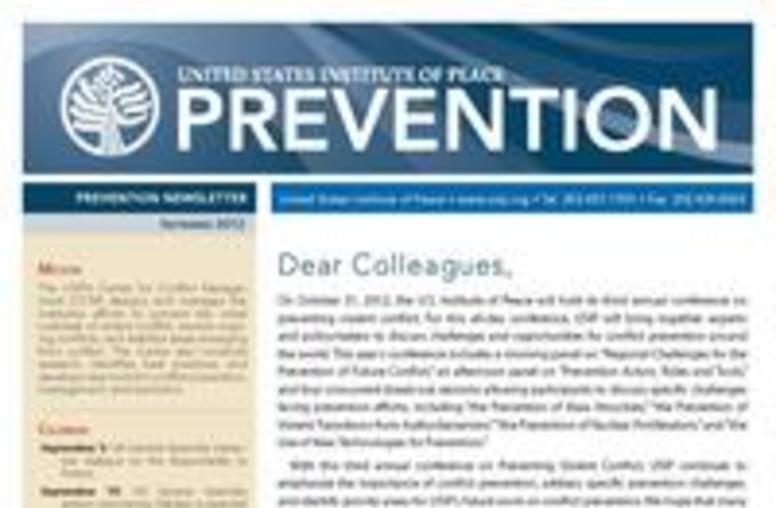
USIP Prevention Newsletter - September 2012
The September 2012 Prevention Newsletter features a spotlight on The Syrian Civil War: Threatening Lebanon's Fragile Stability: Syria's year-and-a-half long internal strife has not only challenged Lebanon with tens of thousands of refugees, gun battles on the border and kidnappings, but reignited tensions along Lebanon's own sectarian fault lines.
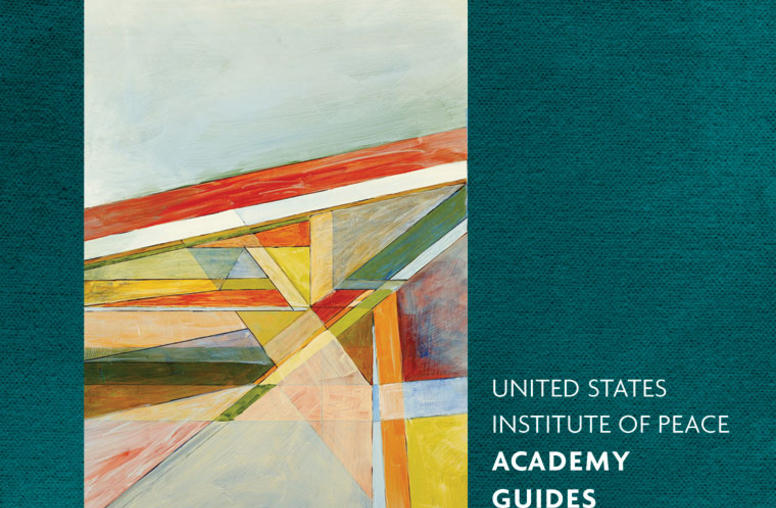
Peace Economics
Creating sound economic policy and a stable macroeconomic framework is essential to societies recovering from violent conflict, yet few practitioners have the background needed to apply economic concepts effectively. To provide practitioners with a concise but broad overview of macroeconomic fundamentals as they touch on violence afflicted states, Brauer and Dunne have created Peace Economics. Filling a gap in the literature on peace design from an economic perspective, Peace Economics extend...
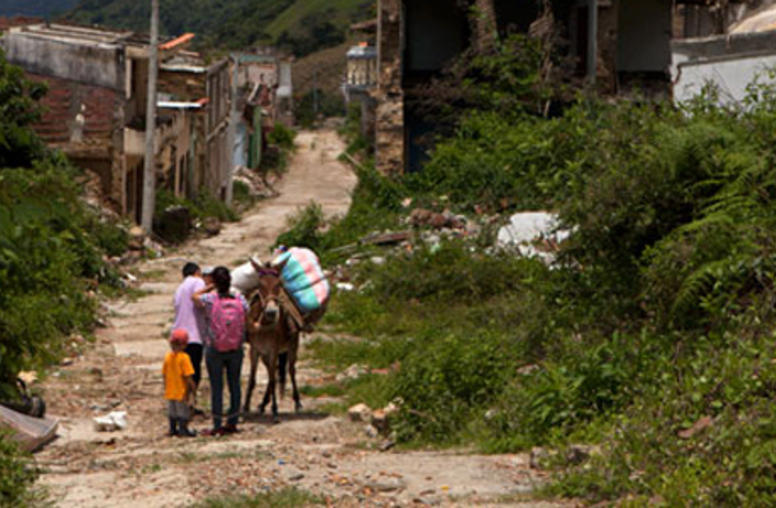
25th Anniversary of Esquipulas II: Lessons for Peace in Colombia?
August 2012 marks 25 years since the signing of the Esquipulas II agreement in Guatemala that brought an end to the wars of Central America. USIP's senior program officer for Latin America, Virginia Bouvier, explores what lessons Esquipulas II might offer for peace in Colombia.
In Memoriam: Roger D. Fisher
Roger D. Fisher, Harvard professor and giant in the field of conflict management and resolution, died at age 90 on August 25th.
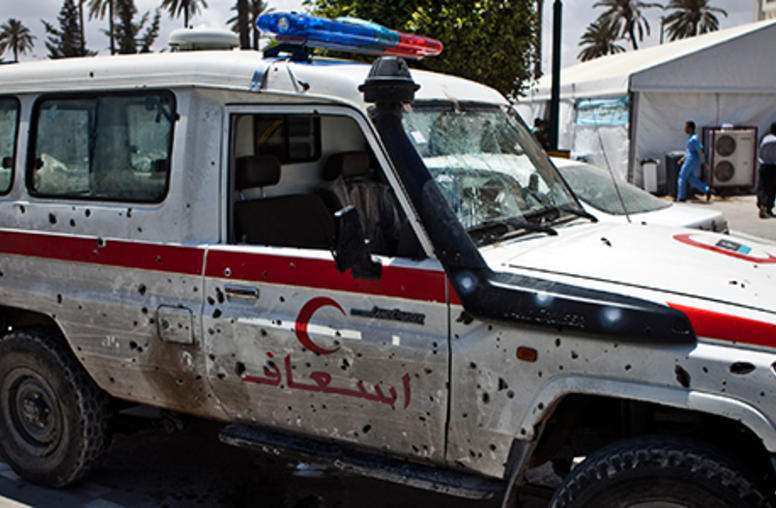
USIP Backs Project to Assess Attacks on Health Care Workers in Conflicts
The U.S. Institute of Peace (USIP) has awarded a grant to The Johns Hopkins Bloomberg School of Public Health to support a pathbreaking effort to systematically track attacks on health care workers and facilities in Burma—creating an analytical tool that ultimately can be used globally and that should become a foundation for efforts to prevent such attacks and promote accountability for those perpetrating them.
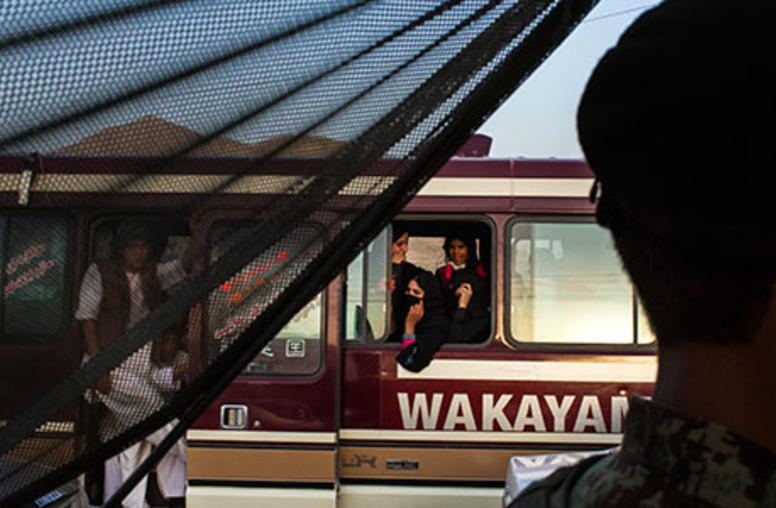
U.S. Military Report on Koran Burnings
Photo Credit: The New York Times/ Mauricio Lima
"The Day After" Project
The Day After project brought together a group of Syrians representing a large spectrum of the Syrian opposition—including senior representatives of the Syrian National Council (SNC), members of the Local Coordination Committees in Syria (LCC), and unaffiliated opposition figures from inside Syria and the Diaspora representing all major political trends and components of Syrian society—to participate in an independent transition planning process.
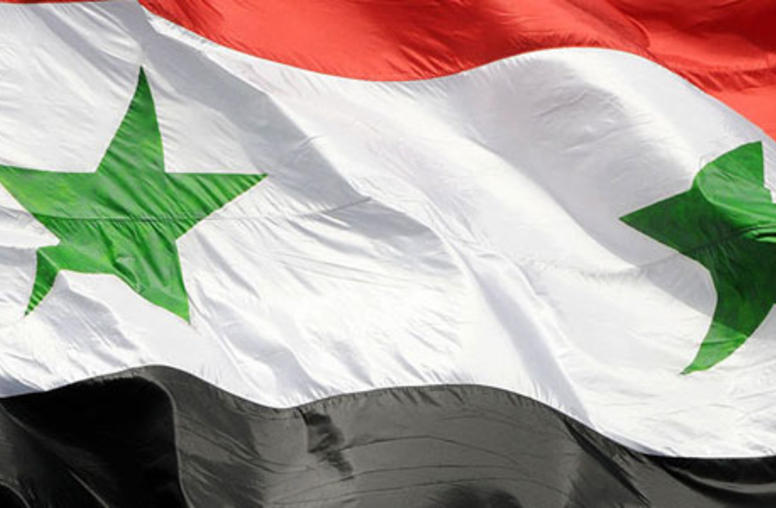
The Day After Project
The Day After project brought together a group of Syrians representing a large spectrum of the Syrian opposition—including senior representatives of the Syrian National Council (SNC), members of the Local Coordination Committees in Syria (LCC), and unaffiliated opposition figures from inside Syria and the Diaspora representing all major political trends and components of Syrian society—to participate in an independent transition planning process.
Food Security and Data Workshop: Can Better Data-sharing Enhance Impact?
The U.S. Institute of Peace hosted a workshop on August 16, 2012 with experts from the U.S. government, international organizations, and the NGO community to examine the use of data to enhance food security. The day-long workshop focused on current strategies to improve agricultural data quality and available technologies to enable better sharing, analysis and application of this data.
Ethiopian Prime Minister Meles Zenawi Dies after Illness
On August 20, Ethiopia’s long-time prime minister, Meles Zenawi, died from an illness. USIP’s Jon Temin examines what it means for Ethiopia, the two Sudans and U.S. interests in the region.